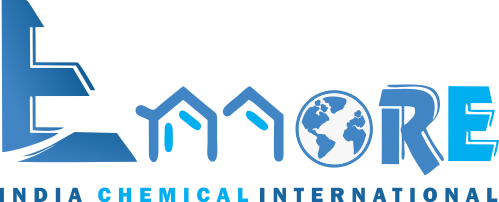Dichloromethane (DCM or methylene chloride) supplier Distributor Manufacturer in chennai Taminadu india
Dichloromethane (DCM or methylene chloride) is a geminal organic compound with the formula CH2Cl2. This colorless, volatile liquid with a moderately sweet aroma is widely used as a solvent. Although it is not miscible with water, it is polar, and miscible with many organic solvents.
Occurrence
Natural sources of dichloromethane include oceanic sources, macroalgae, wetlands, and volcanoes. However, the majority of dichloromethane in the environment is the result of industrial emissions.
Production
DCM is produced by treating either chloromethane or methane with chlorine gas at 400–500 °C. At these temperatures, both methane and chloromethane undergo a series of reactions producing progressively more chlorinated products. In this way, an estimated 400,000 tons were produced in the US, Europe, and Japan in 1993.
The output of these processes is a mixture of chloromethane, dichloromethane, chloroform, and carbon tetrachloride. These compounds are separated by distillation.
DCM was first prepared in 1839 by the French chemist Henri Victor Regnault (1810–1878), who isolated it from a mixture of chloromethane and chlorine that had been exposed to sunlight.
Uses
DCM's volatility and ability to dissolve a wide range of organic compounds makes it a useful solvent for many chemical processes.. Carbon diselenide is produced by reacting selenium powder with dichloromethane vapor near 550°C.
2 Se + CH2Cl2 → CSe2 + 2 HCl
It is widely used as a paint stripper and a degreaser. In the food industry, it has been used to decaffeinate coffee and tea as well as to prepare extracts of hops and other flavorings. Its volatility has led to its use as an aerosol spray propellant and as a blowing agent for polyurethane foams.
The chemical compound's low boiling point allows the chemical to function in a heat engine that can extract mechanical energy from small temperature differences. An example of a DCM heat engine is the drinking bird. The toy works at room temperature.
DCM chemically welds certain plastics. For example, it is used to seal the casing of electric meters. Often sold as a main component of plastic welding adhesives, it is also used extensively by model building hobbyists for joining plastic components together. It is commonly referred to as "Di-clo."
It is used in the garment printing industry for removal of heat-sealed garment transfers, and its volatility is exploited in novelty items: bubble lights and jukebox displays.
DCM is used in the material testing field of civil engineering; specifically it is used during the testing of bituminous materials as a solvent to separate the binder from the aggregate of an asphalt or macadam to allow the testing of the materials.
